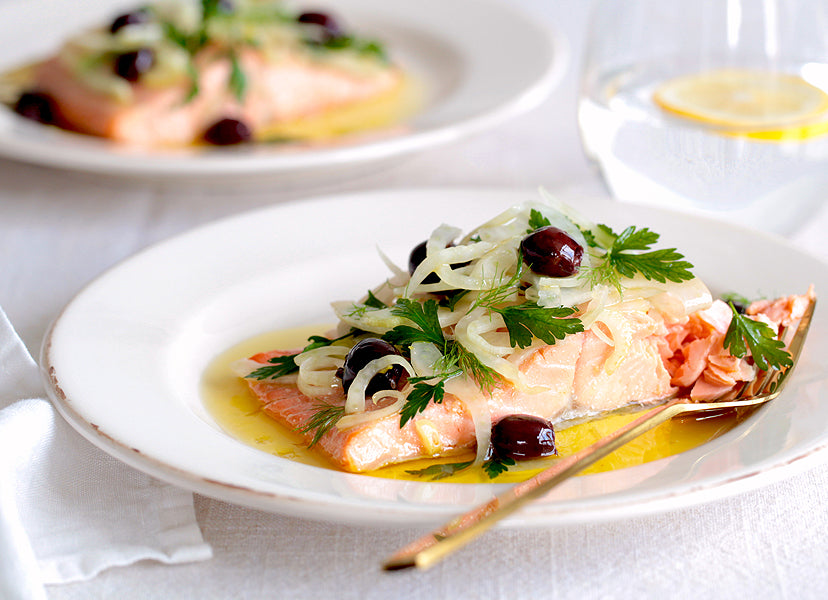The only thing that momentarily drew our attention away from the demands of the bumpy, winding road leading towards the crest of a hill (we would call it a mountain) in Isola del Piano, in the Marches, was the appearance of busy local bee keepers, as we headed up the slopes, to visit Girolomoni. They are our organic supplier of pasta, farro, mountain lentils, extra virgin olive oil and a few other very interesting grains.

We were particularly intrigued to return to the 14th century Montebello monastery that the late Gino Girolomoni was making his life's work to restore, complete with a small museum, when we first visited some years ago.

A pioneer of the organic movement in Italy, Gino is renowned throughout the region as the man who brought it back to life again through the introduction of organic farming. At one point he had also been a very innovative and progressive mayor. These days, both his sons and daughter are involved in the co-operative which now includes 200 farmers spread through this, and other regions, in Italy.
Seven years ago, Gianluca, the General Manager, had told us how lucky he was to work in this company and this environment, a comment he reiterated this visit. Everything in this unique area is farmed organically and the movement has grown considerably over the last few years. Girolomoni grow organic ancient varieties of wheat and grains onsite, and make pasta from these. We heard of plans to build their own flour mill next year on the side of the 'hill'. This will close the circle. Durum wheat is quite difficult to grind compared to normal flour, as it is more like sand in texture. If environment can be seen to directly influence the end product then this mill will produce truly wonderful flour as the views are serene, and the air has a crisp freshness, even on a sunny afternoon. Their power sources are mainly supplied by solar and wind turbine.

The farro used for Girolomoni’s farro pasta is from the father of all modern wheat: triticum monococum. It is characterised by a very appealing natural sweetness. We tried it simply dressed with their extra virgin olive oil. Often people who are sensitive to gluten find they can tolerate this pasta, and the pearled farro they also supply us with. We have recently added their semi-integrale pasta to our Sabato range, which has part of the husk left on, ensuring it is higher in fibre than normal pasta but is still delicious to eat.
Gino’s son, Giovanni, is involved on the business side and his brother Samuele, on the farming side. There is a small restaurant onsite, where the chef, Andrea, was mowing the lawn as we arrived. Andrea's previous employment had been at a two-starred Michelin restaurant and he had been interviewed and employed by Maria, their sister, who later became his partner. Andrea cooked us a really delicious lunch and his talents extended to an interesting crispy cracker made from leftover pasta.

All three of Gino’s children now have children of their own, with Giovanni having married in the chapel of the ancient Montebello monastery, lovingly restored by his father from the roofless ruin we had last seen. In the last few years the children have managed to get through the red tape of Italian administration to have the remains, of both their mother and father, laid to rest in the simple, beautiful chapel.
Here, there is a strong focus on educating the next generation to ensure the survival of the organic movement and Girolomoni frequently invest in this by conducting visits to the property for school groups. The students are shown first hand the passage of the wheat from farm to grain or pasta. Everyone at Girolomoni is very passionate about organic being the sustainable way of the future, and in that environment you can understand the appeal.
Print

